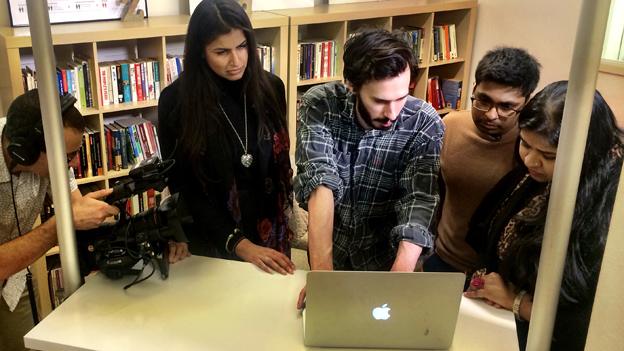Final verdict: Voters' views on the digital election
- Published
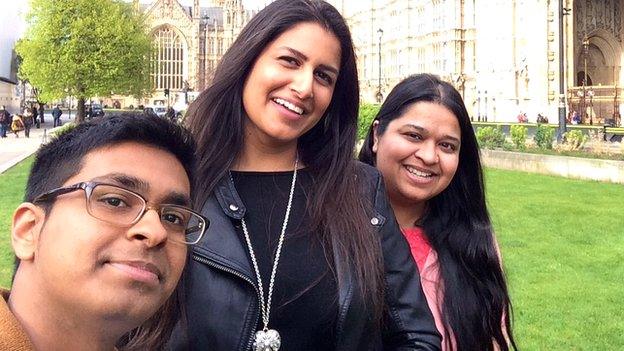
So with millions of tweets sent, Facebook likes posted and online videos shared, the digital campaigning is nearly over.
Later this week we should have a clearer idea of who is going to form the next government. But - in what has been called the UK's first social media election - how instrumental has this battle been?
BBC Asian Network has teamed up with independent political researchers Demos to look at the digital campaign from the point of view of three young, passionate and undecided voters.
Over the last three months they have been following local and national candidates from across the political spectrum on Facebook and Twitter to see whether their minds can be swayed.
Sakib Rashid, 20
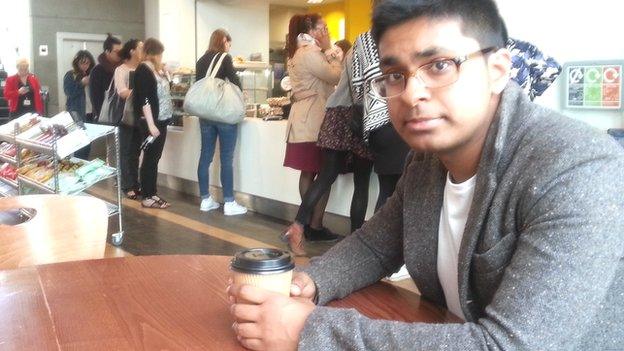
Biomedical student Sakib Rashid is a first-time voter from London's Brent North constituency, a seat held by Labour back in 2010. He came over to the UK from Bangladesh when he was only a year old and has grown up with his mother, brother and sister in a two-bedroom council flat.
At the beginning of the experiment he said he saw a lot of "tormenting" and "finger pointing between the different parties".
But as the campaign has entered its final stages, he says that has changed. "I really, really like what's going on now as we get closer to the election with everyone trying to persuade you rather than just putting down other parties and being really childish."
Simmi Juss, 32
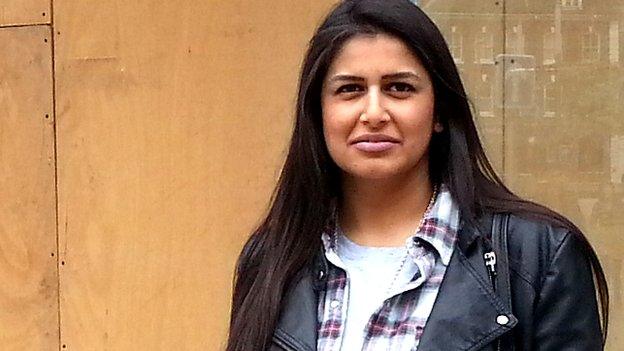
Like Sakib, Simmi Juss from the Wolverhampton South West constituency, is also completely undecided. She is in a tight marginal seat that the Conservatives narrowly won from Labour in 2010.
She is a self-confessed social media addict, but has found the constant political messages filling her timelines to be at times over powering and confusing.
The regeneration of Wolverhampton city centre is a key issue to her, but she is disappointed that her local candidates have not engaged more on the different digital platforms.
What really sticks in her mind has been the funny stories and "the things that are less policy-based and more personal-based".
Milifandom - the growing online group of teenage girls following Ed Miliband- is the campaign that will stay with her the most.
Iram Asim, 31
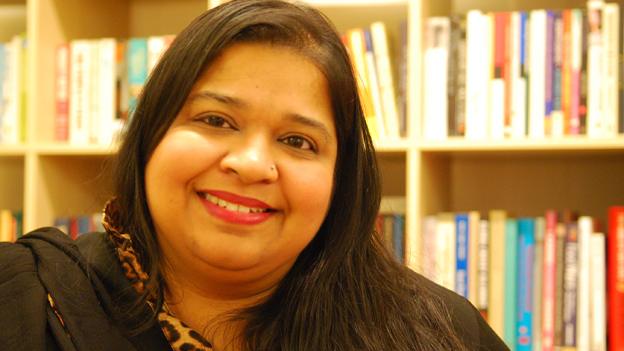
In the constituency of Linlithgow and Falkirk East, Iram Asim began the experiment politically invigorated by last year's referendum, but not knowing who to vote for.
For her too it has been the lighter moments on Twitter and Facebook that have stood out. She particularly liked a mock-up of Britain's Got Talent with David Cameron facing the panel of judges,
"It's pretty hilarious and it's something you would remember as well," she said.
But Iram feels politicians still have a lot to learn on their digital platforms. "They don't make the most of social media," she said. "They don't use it to their advantage, which they should. It's mostly used to taunt other parties."
Decision time
As the experiment nears its conclusion she admits that it has been both social media and the leaders' debates that are swaying her mind towards the SNP - she has not ruled out Labour though.
Of the three of them, though, it is Sakib who has had the most help from social media.
"I've seen a lot of policies being tweeted - it's actually helped me quite a lot to make my decision because now I know I don't have to go and read an article," he said. "I can see straightaway why I should vote for different parties."
Labour's stance on tuition fees chimes well with him, but it is the Conservatives proposals on welfare that could be the decisive factor. "I'll probably be voting Conservative. I say 'probably' because there's a very small chance that I could change my mind."
Simmi cannot decide between the Conservatives, Labour and Liberal Democrats, though. "At the moment it feels like I'm just going to be sort of closing my eyes and you know dropping a pin on one of the parties because I don't know."
Engagement
Comments like that are not likely to go down well with political campaigners who have poured huge amounts of time, resources and money into social media.
Carl Miller, from Demos, says the volume of traffic has been unprecedented. "Over the last 10 weeks of the long campaign we've seen 21 million Facebook interactions and over seven million tweets broadly about politics or the politicians fighting the election and trying to dominate the digital world," he said.
But just how effective have the parties been in getting their points across to the undecided voter?
For Sakib and Iram it has helped both of them narrow down their choice. In Simmi's case though, it hasn't given any politician a clear decisive edge.
What this digital campaign has achieved, though, is engaging the three of them with this election; it has also got them far more interested in what the different parties have to offer.
You can hear the full documentary #Decides on the BBC Asian Network from 17:00 BST on Tuesday, 5 May and afterwards on the BBC iPlayer.
- Published2 April 2015
